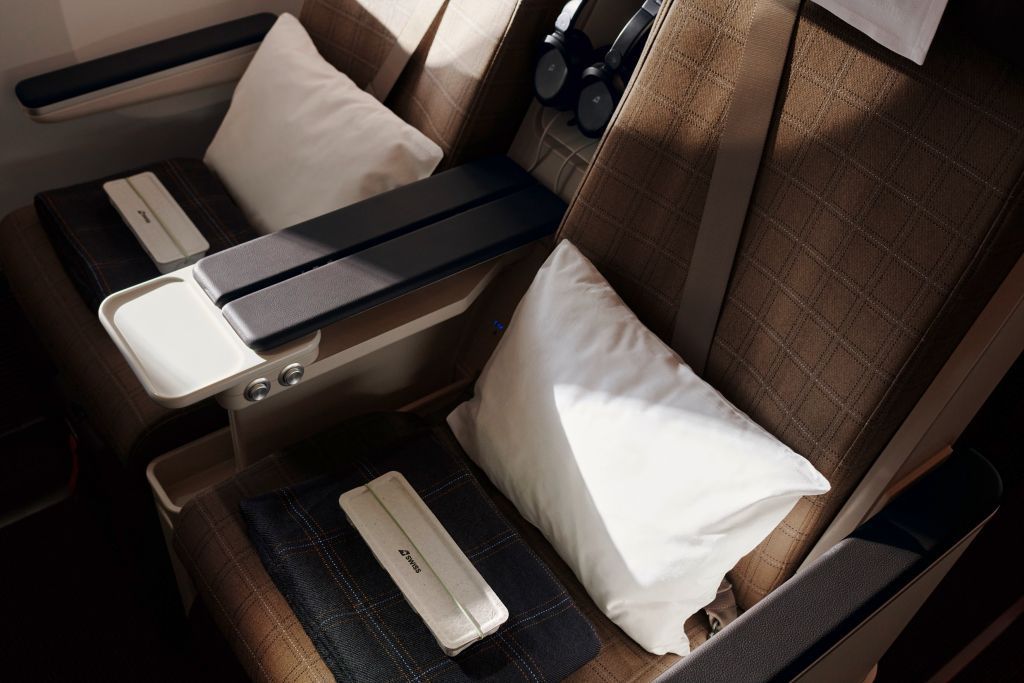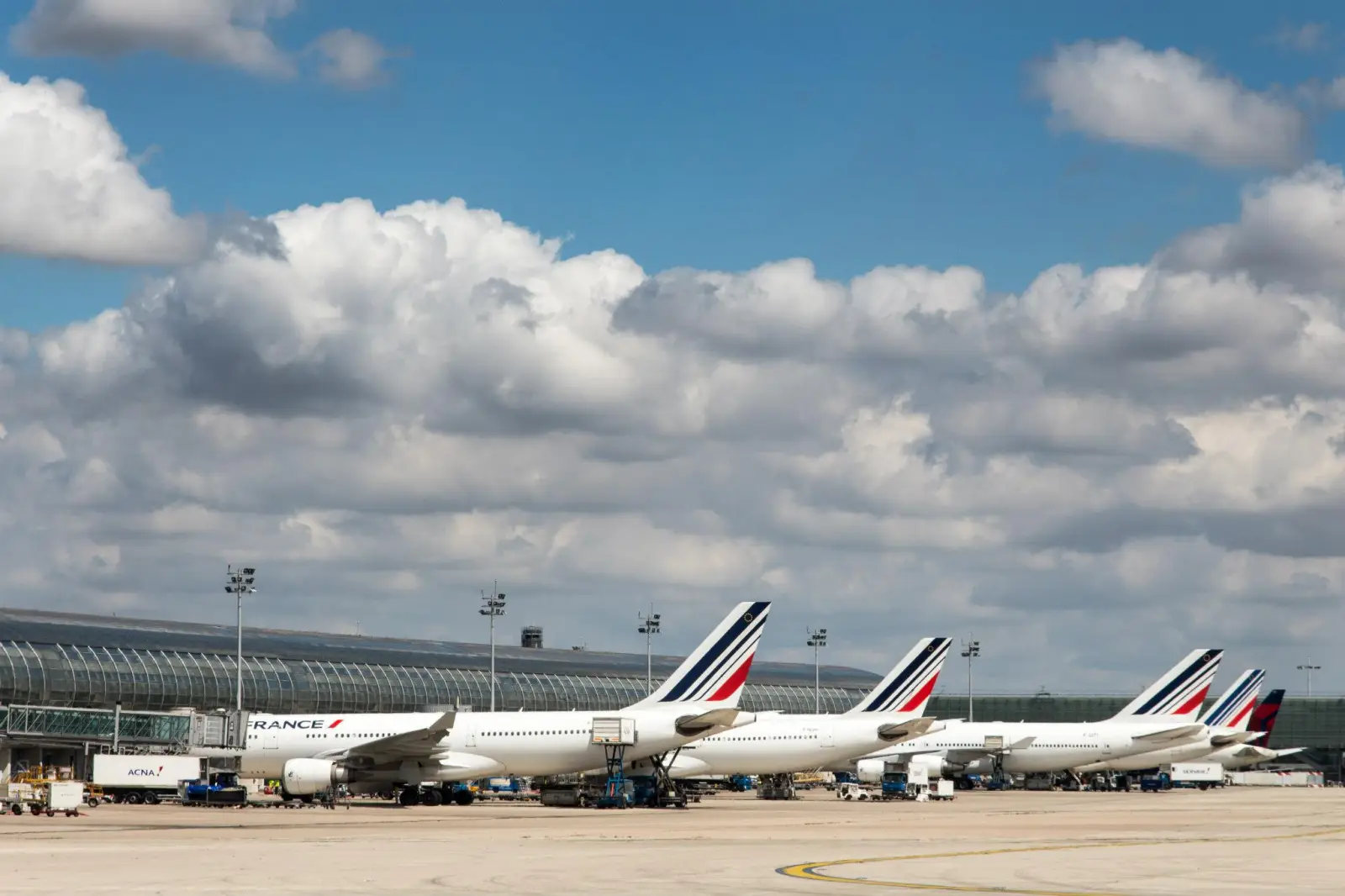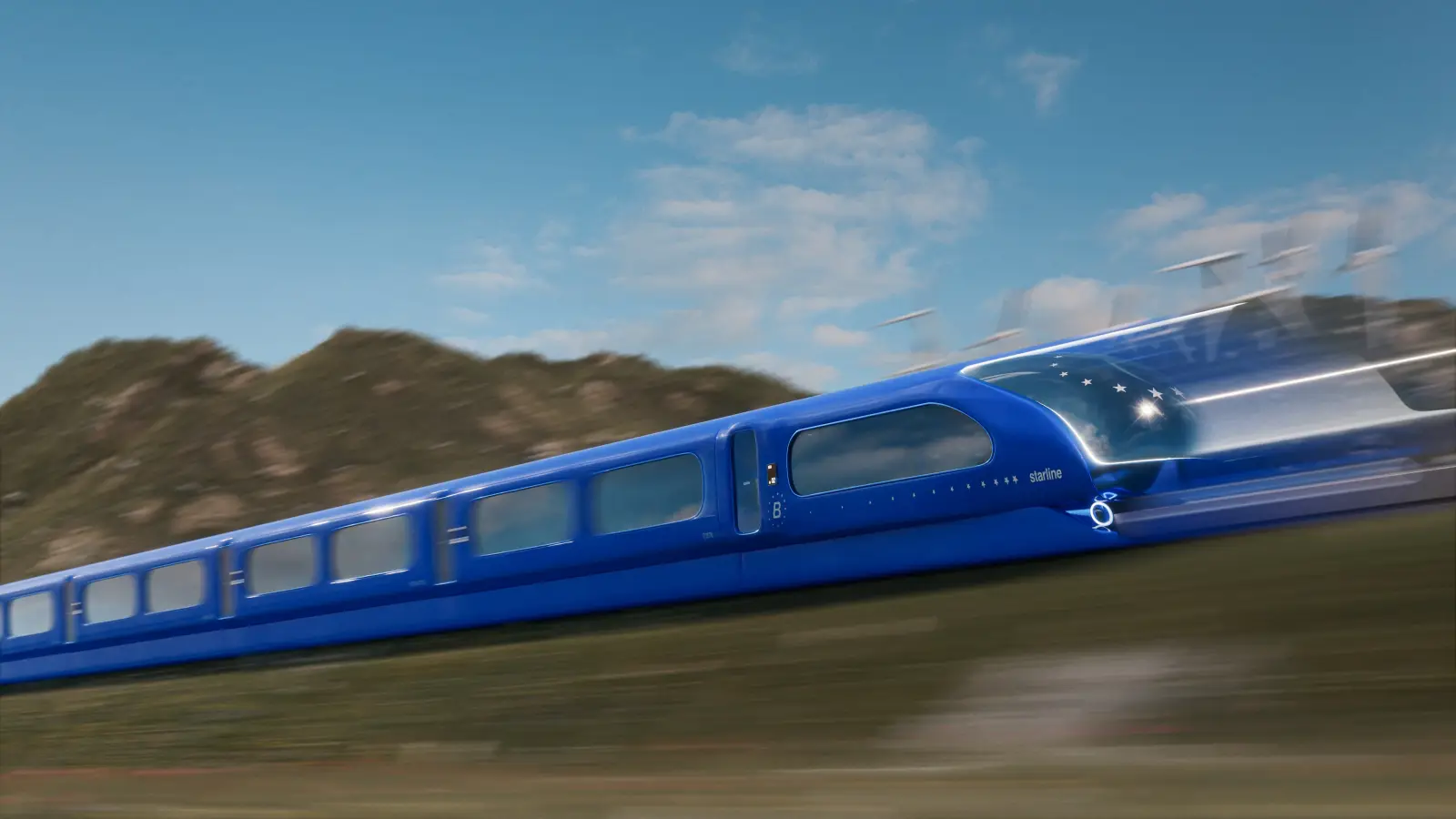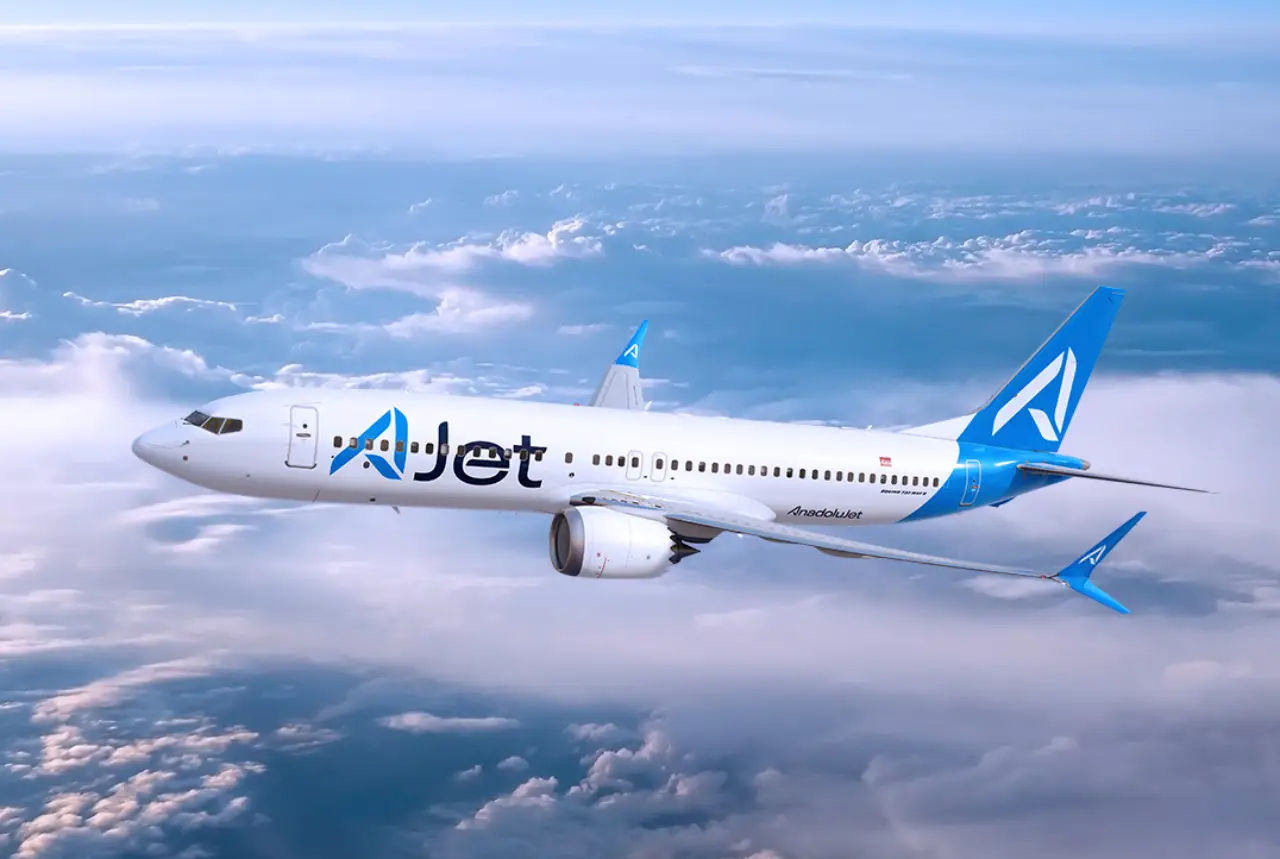SBB and ÖBB are seeking to scale up the existing night train services in Europe from six to ten lines.
Demand for international night train services significantly increased in 2019 and at the start of 2020 until the coronavirus crisis struck. The number of passengers using night train services from Switzerland grew by over 25 percent with respect to the previous year.
With its 19 Nightjet lines and eight further services provided in cooperation with partner railways, ÖBB already runs Europe’s largest night train network. This includes the network from Switzerland run in cooperation with SBB, comprising six lines and one additional service. SBB and ÖBB want to build on this success and expand night train services in Europe together.
Over the last few months, the companies have thoroughly tested and evaluated various options for expanding the service. By cooperating, the railway companies will be able to make use of synergies in the production and marketing of the service offer and save on costs. In the Letter of Intent signed last week, the two railway companies presented their strategy for expanding services as outlined in “2024 Nightjet Network for Switzerland”. The plans involve expanding the Nightjet network from Switzerland to incorporate a total of ten lines and 25 destinations.
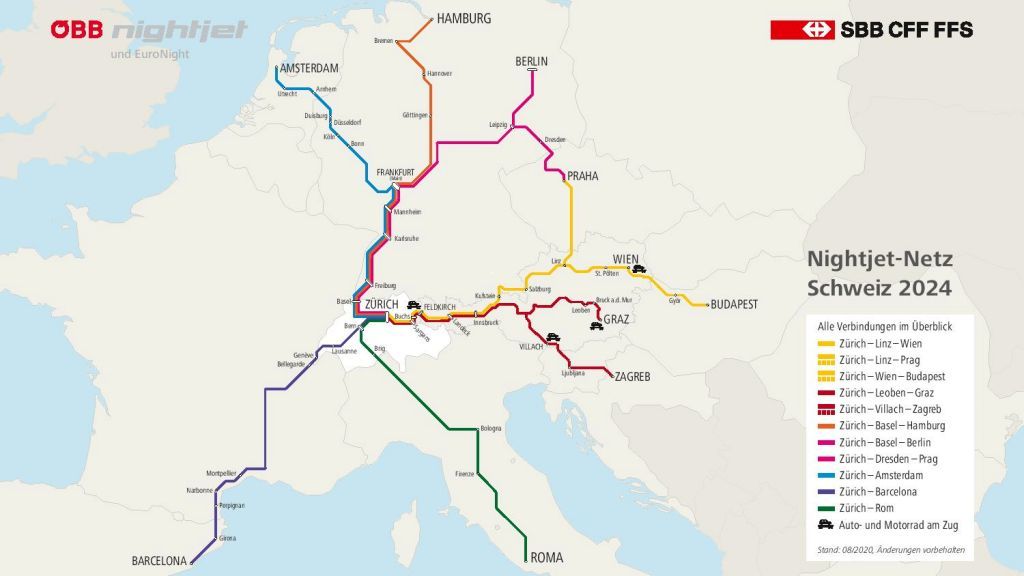
Cornerstones of the expansion plan:
From 2022 timetable onwards: new Nightjet connection to Amsterdam
As a first step in the expansion process, the two railway companies want to launch a new daily Nightjet service running Zurich–Basel–Frankfurt–Cologne–Amsterdam in December 2021. However, the very limited availability of rolling stock suitable for night train services restricts short-term service expansion. SBB therefore intends to lease suitable rolling stock from German leasing company RDC Asset GmbH.
Increasing capacity on services to Berlin, Hamburg and Prague and new connection to Leipzig and Dresden
The services currently provided from Zurich via Basel to Berlin and Hamburg are increasingly popular. Capacity on this route will therefore be expanded significantly. SBB and ÖBB wish to serve both destinations with two separate trains covering the whole route, if possible from the 2023 timetable change. This will enable a significant capacity increase. They also plan to run the service to Prague via Germany as a portion of the Berlin Nightjet with sleeping cars and couchettes. The new route would also provide a direct connection to Leipzig and Dresden.
{source}<a target=”_blank” href=”https://c116.travelpayouts.com/click?shmarker=260060.news&promo_id=3942&source_type=banner&type=click”><img src=”https://c116.travelpayouts.com/content?promo_id=3942&shmarker=260060.news&type=init” alt=”EN – 300×250″ width=”300″ height=”250″></a>{/source}
Plans for new connections to Rome and Barcelona
There are plans for a new line connecting Zurich via Bern, Brig, Domodossola to Rome. A daily connection from Zurich via Bern, Lausanne, Geneva to Barcelona is also planned. This would also integrate French-speaking Switzerland directly into the night train network. It is not yet clear whether it will be possible to run these two lines, as agreements with other partner railways are yet to be reached.
To ensure that night train services can be expanded in the medium to long term, ÖBB is also investing in new rolling stock. The new night train sets are to come into service gradually over a period of time.
The two partner railway companies consider this a sustainable trend given the significant rise in customer demand for environmentally friendly and resource-efficient travel. There is clear evidence to show that night trains have a positive effect on overall emissions, as they generate modal shift from other modes of transport to rail. ÖBB and SBB share the goal of shifting more travel to rail and thus contributing to a reduction in CO2 emissions from the travel sector. This commitment reflects the aims of the Paris Agreement on climate change and the political and public will to develop an attractive night train network as an important component of environmentally friendly and sustainable mobility in Europe.
Alongside the planned service expansion, SBB, ÖBB and other partner railways are campaigning for transport policies which facilitate night train operations in Europe. In Switzerland, the total revision of the CO2 Act after 2020 is being debated in the autumn session of the Federal Parliament. The Act provides for support for cross-border rail services from the climate fund. Last week, the Swiss Parliament voted in favour of supporting international passenger services, including night trains. While subject to a final vote and a possible referendum, financial support from the climate fund would compensate for the losses SBB would sustain given the high operating costs night train services involve.
Andreas Matthä, ÖBB CEO, said: “We have no doubts about the Nightjet’s success. With SBB as a committed and effective partner, we can continue to expand the Nightjet network even further. We are investing in new trains: 13 latest generation Nightjet sets will be in operation from the end of 2022. With additional services and modern rolling stock, taking the night train will become an even more attractive option.”
SBB CEO Vincent Ducrot has no doubt that demand for fast daytime services and night trains will continue to grow. “This is a sustainable trend and the demand for environmentally friendly and resource-efficient mobility will continue to increase.”
SBB and ÖBB consider night train services as an important element of the overall service offer and see great potential for creating synergies with daytime services. An attractive rail offer helps to achieve the goal of modal shift from short-haul flights to rail.
Image Credit: © SBB CFF FFS


